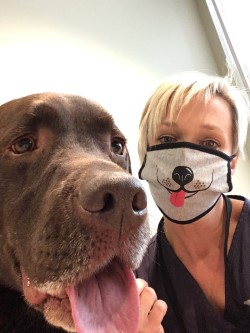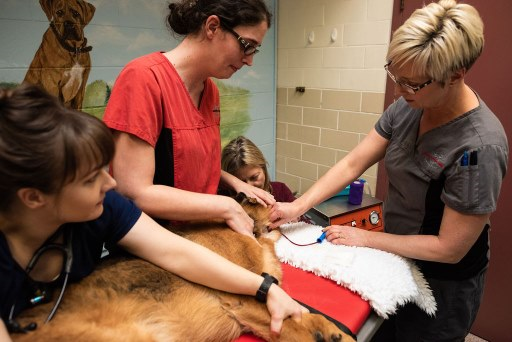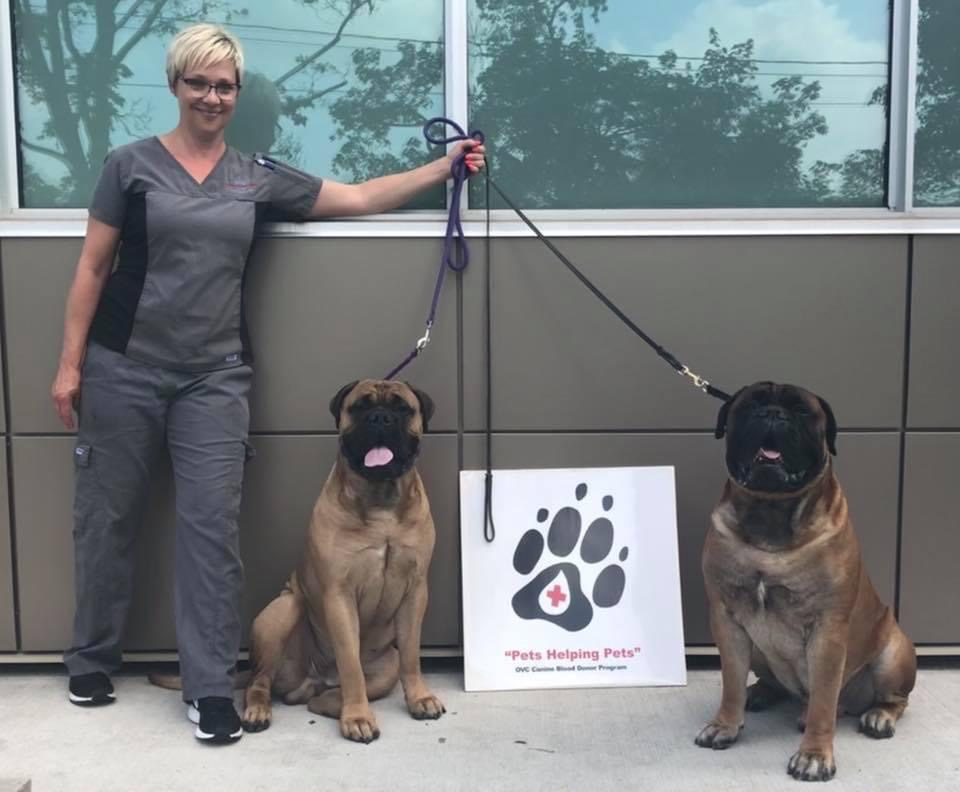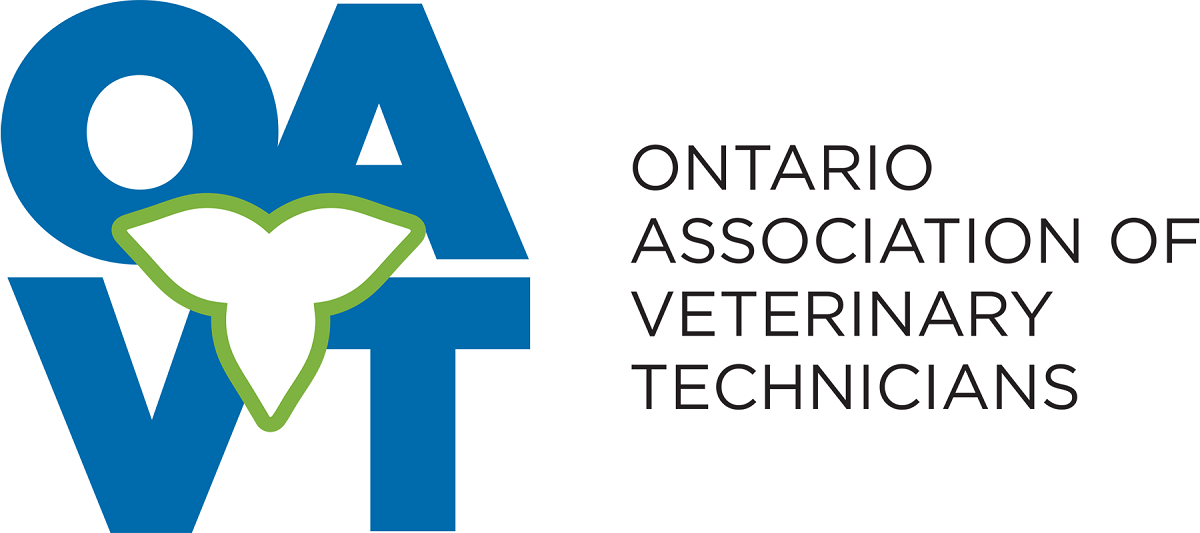
Ramona Fowler, RVT
Where did you go to school and what made you decide to take a Veterinary Technology program?
I went to Centralia College of Agricultural Technology for Animal Health Technology in 1989.
I had always known growing up that I wanted to work with animals. I worked as a kennel attendant at a small animal clinic while in high school, and realized I really liked the duties of the Veterinary Technician at the clinic.
She sold me on attending the Animal Health Technology program at Centralia and I loved it right away. The school closed in 1993 and that program is now offered at Ridgetown. We were a tight-knit class and still keep in touch.
What is your current job(s)?
Full time Registered Veterinary Technician – Companion Animal Wards, Coordinator of the Canine Blood Bank – Ontario Veterinary College Health Sciences Centre
COVID-19 has amplified stress and uncertainty in everyone’s lives. How do you incorporate that understanding in your role as an RVT?
COVID has certainly put a lot of stress on Technicians in the field. With added appointments, fewer staff, and family responsibilities to juggle, it is easy to try to be superwoman all the time. However, we must be kind to ourselves and be conscious of taking a coffee/lunch break to relax and refuel. Setting realistic goals each day will make you feel good about accomplishing your daily tasks. Remember to have empathy for clients, who can no longer come into the clinic and who put all their trust in you as you take their beloved pet away from them as they helplessly wait outside.
What other jobs have you had in the RVT field? / What made you want to pursue this position?
After graduating from the Animal Health Technology program, I worked in private practice for 2 years. I had performed my externship at OVC, and my goal was to eventually work there. I was interested in the many different areas of expertise OVC had to offer. Since my employment began at OVC, I have worked in ICU and Oncology with most of my employment being in the Companion Animal Wards.
Tell us about your career path and how one role helped open doors for another role. Was it scary making a change? What advice can you give other RVTs who may “want a change” and they just don’t know how to turn it into a reality?
Working in private practice was comfortable and I enjoyed my job. However, I really wanted to be where the action was. My goal was to work at OVC, and I applied for a 6-month maternity leave. It was a risk leaving my full-time job, but I worked hard to stay there once the leave was over. It is hard to leave your comfort zone but if you know in your heart you want a change, apply yourself and you will find it very rewarding. Have confidence in yourself and others will too.
What are your goals as an RVT? Not just your immediate goals, but long-term goals.
My long-term goals are to spend most of my workday banking blood. The demand for blood has increased significantly during COVID and my goal is to increase our blood stock. In the meantime, I will continue to provide excellent nursing care to our ward patients and Technical support to my area of work.
RVTs are passionate people, and every RVT has an area they are most passionate about (nutrition, research, spay/neuter, dog bite prevention, education, etc.). What is YOUR passion?
My passion is canine blood banking. To know I can make a difference by providing quality blood products is very rewarding. I sincerely enjoy working with clients and their blood donor dogs on a regular basis. I get to know the clients and their dogs on a personal level and feel like they are an extended part of my family. I am truly saddened when their pet retires from the program. I have many fond memories of past clients and their donor dogs.
Is there one thing you would like to see change in the RVT field in 2022?
Veterinary medicine needs RVTs now more than ever. My hope is that RVTs will stay in the field and that more employers will recognize their abilities and utilize them to the fullest. A suitable work-life balance, as well as a fair wage, will also help motivate RVTs to stay in their field.


